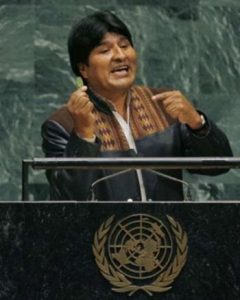So said Bolivian president Evo Morales, speaking at the United Nations last month. He called on developed nations to accept partial responsibility for the rising food prices caused by biofuels. His call came in a month that has seen the World Bank report a worldwide surge in food prices that threatens millions of the world’s poorest with hunger.
The turning over of land previously used for food to biofuel crops, driven by increasing fuel demands, (alongside other factors, such as China’s increasing food requirements), has led to food shortages that have increased the price of food. Many environmental organisations have in fact long opposed biofuels for their environmental, social and economic impacts.
Given that they were once considered a solution to energy scarcity, world poverty and climate change, biofuels have been a major misfire. As we discuss in depth in Pocket Issue: The Energy Crisis and Pocket Issue: Global Warming, there are no easy solutions to such complex problems.
The claim that we live in an increasingly globalised world has long been a cliché. And with the credit-crunch and energy scarcity looming, and threats from climate change on the horizon, trust in future prosperity has been shaken. Nevertheless, that the global economy can preside over worsening poverty still comes as a shock.
As we discuss in the forthcoming Pocket Issue: Money (out in May 2008), though neither the developing nor the developed world are immune to such shifts, there are things governments and individuals can do to mitigate their effects.

